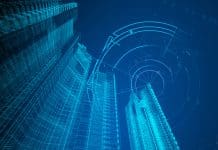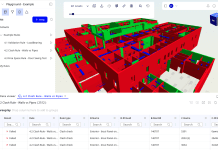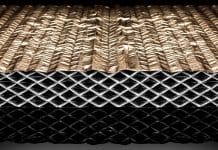New whitepaper explores how to identify and mitigate fire risks for flat roofs functioning as additional social or practical spaces of a building, including for solar installations
Today’s flat roofs are increasingly used as multifunctional spaces for social and practical applications, including solar energy installations.
This expanding remit, particularly in crowded urban areas, brings multifaceted challenges to specification and building design.
The role of the roof in modern building design has expanded significantly in recent years
Now ROCKWOOL has published a whitepaper aimed at helping specifiers and roof contractors to consider and plan for possible fire risks arising from flat roofs being used as multifunctional spaces for a variety of social and practical applications, highlighting, for example, the increasing number of solar energy installations.
‘The Flat roofs: The functional fifth façade paper’ explores the fire safety implications of modern multifunctional roofs and discusses best practices for identifying and mitigating the risks. It also explains the role of the guidance provided in approved documents, including Approved Document B (ADB) for fire safety, and examines potential limitations of such advice for non-standard flat roof circumstances and scenarios.
“While the use of flat roofs as functional spaces is not a new concept, the practice has become more and more popular in recent years, especially in increasingly crowded urban areas,” explains Lisa Stephens, Product Manager – Building Envelope, ROCKWOOL UK.
“Now, flat roofs don’t just house plant and building services but energy efficiency infrastructure and social spaces too.”
The whitepaper explores how to balance sustainability with fire safety on flat roofs
With the increasing complexity of the flat roof space in mind, this whitepaper addresses the risks associated with social and commercial uses of flat roofs, considering implications such as greater footfall and the impact of penetrations from building services and cabling on compartmentation and fire resistance.
With the market for solar energy growing rapidly in the UK and Europe, ‘Flat roofs: The functional fifth façade’ also places a specific focus on the lack of dedicated guidance for solar panels despite evidence that their presence may increase fire risk.
“The information in the whitepaper will help those involved in the design and installation of flat roofs to make responsible choices when selecting materials to enable a modern flat roof to be multifunctional, safe and long-lasting,” says Lisa Stephens. “It offers practical advice to simplify specification whilst going above and beyond legislative requirements.”
You can download your copy of ‘The Flat roofs: The functional fifth façade paper’ here.









![[Video] Fireco: 80 new fire doors required for residential flats in London](https://www.pbctoday.co.uk/news/wp-content/uploads/2025/04/2024-06-01-Lords-view-one_1200x750_004-218x150.webp)




